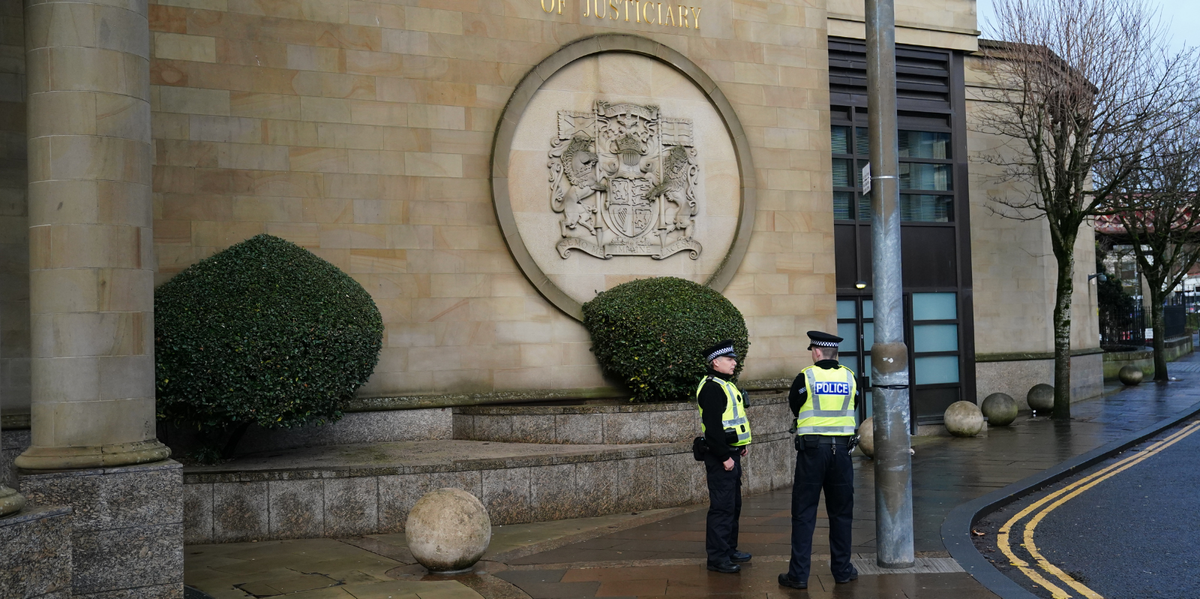Tragedy in Glasgow: The Fatal Consequences of Youth Violence
In a shocking turn of events that has left the Glasgow community reeling, a 15-year-old boy has pleaded guilty to the culpable homicide of 70-year-old Patrick Colquhoun. This tragic incident, which unfolded mere minutes after the teenager was released from police custody for a separate assault, raises serious questions about youth violence, accountability, and the societal factors contributing to such devastating outcomes.
The Incident: A Chain of Violence
The events leading to Colquhoun’s death began on April 12, 2023, when the teenager attacked a 65-year-old shopkeeper, Nadeen Mohammed, with a knife. Prosecutor Angela Gray KC detailed how the boy, accompanied by a friend, confronted Mohammed and his son outside their shop, demanding they "come outside." In a moment of aggression, the teenager brandished a knife, inflicting a wound on Mohammed’s arm that required hospitalization and stitches.
Despite the severity of this earlier assault, the teenager was released from police custody later that evening, only to commit another violent act shortly thereafter. Around 11:42 PM, as Colquhoun was leaving the Queen’s Park Cafe to visit a nearby takeaway, he was confronted by the teenager, who accused him of urinating on a car rented by the boy’s father. In a fit of rage, the teenager punched Colquhoun, causing him to fall backward and suffer fatal injuries.
The Aftermath: A Community in Shock
The impact of Colquhoun’s death has reverberated throughout the Glasgow community. Witnesses described the scene as chaotic, with bystanders rushing to assist the injured pensioner. Despite their efforts, which included performing chest compressions, Colquhoun succumbed to his injuries, suffering from a brain bleed, skull fracture, and bruising. The court heard that his alcohol consumption may have exacerbated a pre-existing brain condition, contributing to the tragic outcome.
The teenager’s actions have sparked outrage and concern among community members, who are grappling with the implications of such violence. The case has highlighted the urgent need for discussions around youth behavior, the influence of peer pressure, and the role of parental guidance in preventing similar incidents.
Legal Proceedings: Accountability and Consequences
Following the attack on Colquhoun, police were able to trace the teenager through CCTV footage, leading to his arrest. Upon being apprehended, he admitted to the assault, stating, "I slapped him… He was p***ing on my father’s car. I shouted at him, but he would not listen." His admission reflects a troubling mindset that trivializes the consequences of violent behavior.
The teenager has since been detained in a secure unit, and his case has been brought before the High Court in Glasgow. He pleaded guilty to culpable homicide and assault, with his sentencing deferred until October 18. The judge, Lord Harrower, has ordered that the teenager remain in the secure unit until that date, emphasizing the seriousness of the charges against him.
Broader Implications: Addressing Youth Violence
This tragic case serves as a stark reminder of the growing issue of youth violence in society. The circumstances surrounding the teenager’s actions raise critical questions about the factors contributing to such behavior. Experts suggest that a combination of social, economic, and familial influences may play a role in shaping the actions of young individuals.
Community leaders and policymakers are now faced with the challenge of addressing these underlying issues. Initiatives aimed at promoting conflict resolution, providing mental health support, and fostering positive relationships among youth are essential in preventing future tragedies.
Conclusion: A Call for Change
The death of Patrick Colquhoun is a heartbreaking reminder of the consequences of unchecked violence and aggression. As the Glasgow community mourns the loss of a beloved pensioner, it is imperative that we reflect on the broader societal issues at play. By fostering open dialogues about youth behavior and implementing effective prevention strategies, we can work towards a future where such tragedies become a thing of the past. The time for action is now, and it is a collective responsibility to ensure that no more lives are lost to senseless violence.
